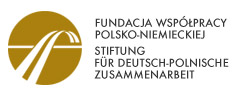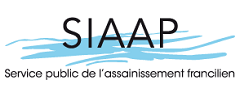What does the Brexit mean for us women?
An intervention by Gabriele Köhler, member of the Board of WECF Germany on the World Development & Economy in Brief website
28.06.2016 |
The Brexit is not gender neutral.
What is good about the EU idea for everyone, whether living in Europe or elsewhere in the world, is the notion of open borders and open minds, giving us a pacifist, human rights-based identity – this promise is still there even if it has been fundamentally violated these past years.
What is good for everyone and especially women and for people who are in difficult situations – migrant workers, many of whom are women - and asylum seekers, many of whom are children - are the EU’s core philosophy and values of equality, rights, solidarity, social justice and a (certain degree of) commitment to climate justice.
What is good, especially for young people and children, is the freedom of movement of persons, the coming-together of minds in work and leisure, in culture, sports, in teaching and research. The freedom of movement without visas and work permits could be hollowed out if the British government and the EU do not manage to negotiate an amicable separation.
What is bad about the EU for us women is the EU’s neoliberal economic policy – its penchant for deregulated labour markets and its fixation on debilitating fiscal austerity. These policies affect women in the workplace and in the care economy, because they undermine decent work and social security, and systematically underfund the necessary investments in education, health services, and social infrastructure – which need to expand massively. Neoliberal policies deprive us of leisure time. This will not change for people in Britain by leaving the EU – not as long as the UK Conservatives are in power.
There are gender implications also at the global level. The Brexit is by implication a nationalist choice. We as progressive women have a commitment to multilateralism, where the understanding is that not only all people but also all peoples are equal. National interests – perceived or real – need to be negotiated with all other countries’ interests to find common, humanist ground. That is why we support entities such as the EU and the UN – with all their faults (which we persistently analyse and patiently work on changing).
So:
● For Europe: We need to come up with “purple flags” – a list of those commitments that must be contained in the Brexit separation package – in the interest of women, of gender equality, the interests of youth, and children’s rights in the UK and in the EU.
● Globally: We need to keep our eye trained on the UN ball. We need to make sure the UK meets its commitments to the UN 2030 Agenda for Sustainable Development. Some of the Conservative and pro-Brexit ideology is not conform with the spirit of the agenda of “transforming our world”.
● And last not least - but certainly not a footnote: The selection of the next UN Secretary-General is imminent. The UK is a permanent member of the Security Council and in that capacity will cast their vote for the next S-G. We need to make sure that Mr Cameron or his successor vote for a gender-empowering person with courage. We need an S-G who will boldly defend human rights and promote economic and social justice, climate justice, and gender equality. Now more than ever.
Posted: 27 Jun 2016
Recommended citation: Köhler, Gabriele (2016) 'What does the Brexit mean for us women?', World Economy & Development In Brief, Issue 1-2/Jan-Jun, Luxembourg (www.wdev.eu)
Related News
Meet the Winners of the Gender Just Climate Solutions Award at COP24
On the 70th anniversary of the Universal Declaration of Human Rights, we awarded Gender Just Climate Solutions Winners at the climate negotiations in Katowice, Poland
11.12.2018
A life without plastic, wouldn't it be fantastic?!
Interview with Charlotte Schueler of @PlastikfreiLeben, who lives a zerowaste life in Munich, Germany and shares her experiences to her 25.2 thousand followers on instagram & 37.2 thousand followers on facebook
14.09.2018
What to expect from the climate talks that resumed in Bangkok this week?
COP24: second intersession of the climate change negotiations 2018, Bangkok, Thailand
07.09.2018
Calling for periods free from plastic & hazardous chemicals
Letter to Frédérique Ries, MEP, European Parliament on behalf of the #BreakFreeFromPlastics movement
04.09.2018







































